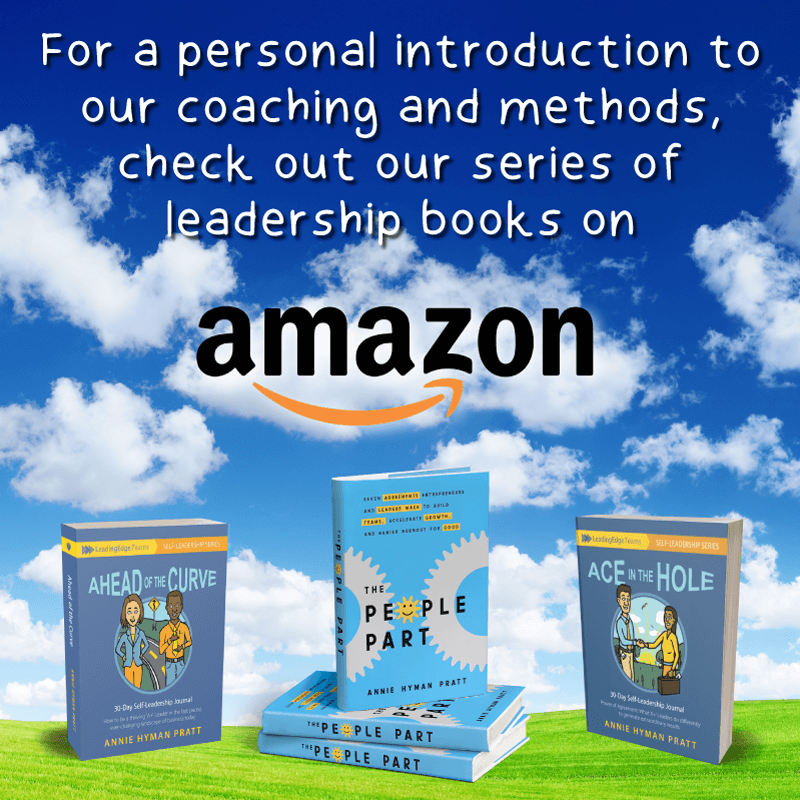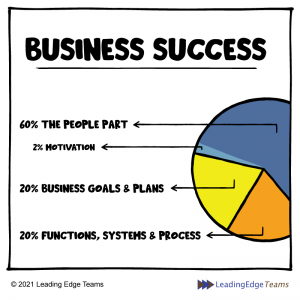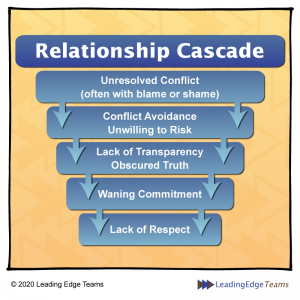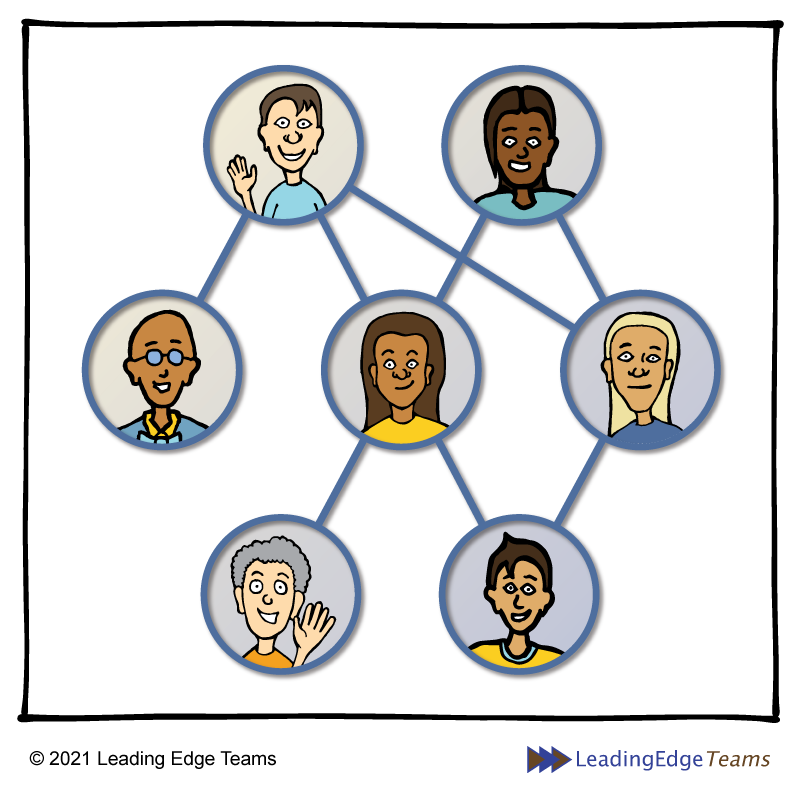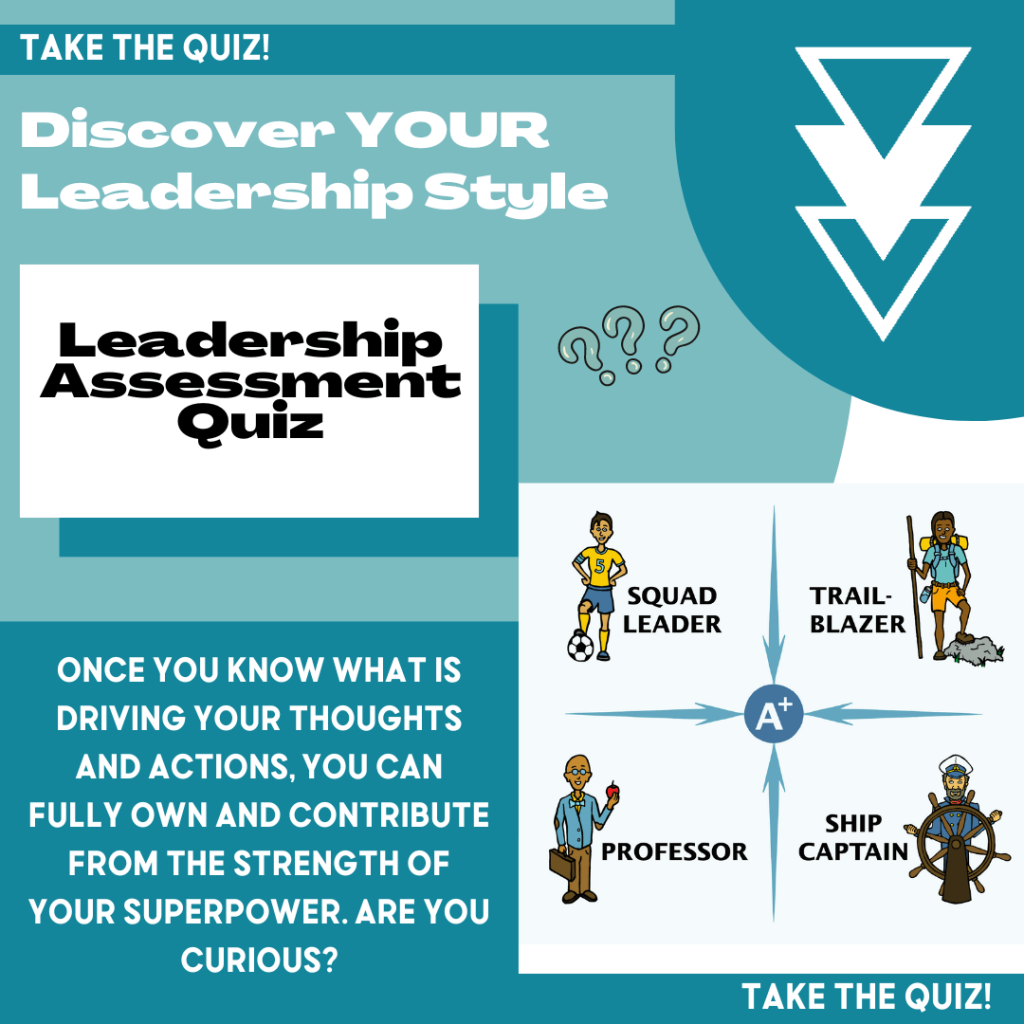My advice? Don’t skip over this topic. Awareness and skills about secure working relationships and psychological safety in your company are essential. These top the list for building and mobilizing a high-performing team.
Within every company—whether you are the CEO, manager, department head or supervisor—all business leaders need to be clear about their part in establishing a psychologically safe workplace. Knowledge about this, and the skills to put it into action, assures both your business and your people—SOAR!
Without feeling psychologically safe, people turn inward. Humans are threat detection machines—and all are hardwired to default to self-protection. That distracts from focusing on achieving the needed outcomes and building working relationships.
Without psychological safety, it’s a downward spiral.
Believe me, you will not hire and keep ‘A’ Players on your team if leadership behaviors cause people, or the team as a whole, to resort to obstructive habits of self-protection, due to not feeling secure to speak up or take independent action. They will go elsewhere.
The Relationship Cascade
Does this “Relationship Cascade” ring true for you? Are these feelings and behaviors commonplace within your company? If so, this is a wake up call…

Even though psychological safety and secure working relationships are crucial predictors of team performance, few CEOs or executive leaders consider whether those are present and active in their culture. Above all, they are focused on hard-driving to achieve company outcomes.
About 70 percent of the time, high level leadership behavior counteracts psychological safety. Instead, company leaders are demanding, super-critical and hard-driving. Oftentimes, this is the same pressure they put on themselves, so it becomes a huge blindspot that this same energy and approach is damaging to the people on the team.
What’s needed, and what will automatically roll downhill, influencing everyone in the company, is leaders who empower people at all levels to feel safe to take risks, speak out, admit mistakes—and to feel free to ask for what they need to do a quality job on a project. Simply said, all people are safe to tell the truth, even when the truth might be risky or uncomfortable.
You and most business leaders have heard or used the term “psychological safety.” Defined it means: The interpersonal state where one feels safe to drop their self-protections and freely express themselves without being blamed, judged, criticized, abandoned, or disrespected.
Think about other words or phrases that further define it for you.
________________________________________________________________
(We invite you to share it in the comment section below this blog.)
We All Have Blindspots
Unfortunately, entrepreneurs, CEOs, executive leadership teams, only know what they know! The biggest factor is that they (most of us have been there at one time or another) don’t know when they are stifling and controlling, or unsafe to approach. Even when they do recognize it, they don’t know what to do about it. They honestly don’t know there is a better way. They figure, their thinking, their genius is what creates the outcomes. The opposite is in fact true; they are not empowering the team to use their skills, freely and unhindered—which is what effective teamwork and productivity is all about.
The higher your position in the company, the greater responsibility you have to create and model an environment where team members/employees feel safe, heard and appreciated. Create space to discuss issues without blaming or criticizing. And heed what can feel even worse to team members, and that’s a leader's silence. Being disrespected to the extent that team members are completely unseen, unheard and ignored, as if a fixture on the wall rather than a human being, is completely demoralizing.
I work with many CEOs who are oblivious to their negative behaviors towards their team. But once they are aware, they can make better choices and are inspired to do so when they realize that to get good business results you need an empowered team — which requires psychological safety!
Trust and Respect
It doesn’t take “rocket science” or me telling you, to understand that people who feel they work in a trusting workplace perform better.
Psychological safety isn’t necessarily about being overly nice; it’s more about modeling these behaviors:
- Be respectful and appreciative
- Have each other’s backs
- Give timely and necessary information for tasks and projects
- Offer honest feedback
- Making effective, conscious agreements
- Openly admit mistakes
- Take responsibility and own your part in the problem
- Appreciate that there’s always something more to learn.
Your checklist for generating psychological safety and promoting secure working relationships:
- Set clear, reasonably achievable expectations
- Check that each member has what they need to achieve results
- Make mutual agreements, including making requests without pressuring
- Talk tentatively—ask open-ended questions
- Listen actively—respect their point-of-view
- Acknowledge facts, challenges and uncertainties
- Meet feelings with empathy and compassion
- Reverse shoes—walk in theirs for awhile
- Express positive belief in them
- Get curious, be interested about their well-being
- Repair situations ASAP
- Take responsibility for you and your part in any issue
Go down the list; the more safety you provide, the more you can request people to perform outside of their comfort zones. It requires courage for your people to step up and take more ownership for delivering outcomes. That’s why you must create psychological safety!
It Takes Two!
Take note that creating psychological safety is a two-way responsibility—you can provide someone a psychologically safe environment (to the best of your ability), but you can't make someone feel psychologically safe if they aren’t able to regulate their own emotions.
Building psychological safety and secure relationships begins with your ability to show up in your secure self, (and for others to do the same), which is why the CcORE Empowerment Process is so integral to everything we teach and coach.
Contact us for further information and guidance.
This is leadership!
Annie and Leading Edge Teams




